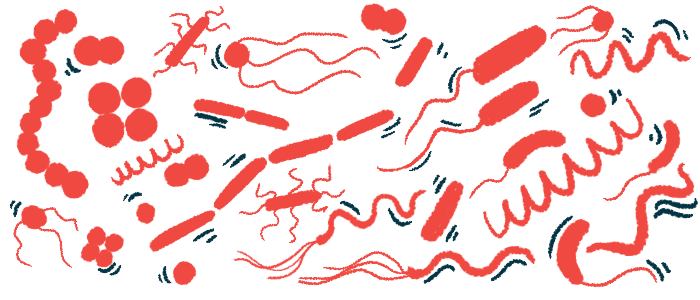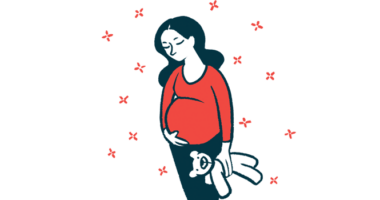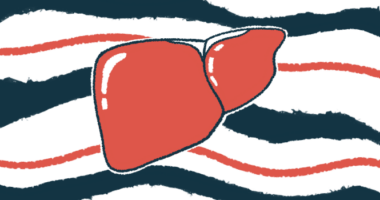Probiotics may help women with ICP, but risks not yet known
Poorer diversity evident in gut microbiota of patients during pregnancy

Women with intrahepatic cholestasis of pregnancy (ICP) show lesser diversity across their gut bacteria than do other pregnant women, a study reports.
Its findings suggest that certain probiotics — live microorganisms found in yogurt, fermented foods, and dietary supplements thought to improve gut health — may help to manage ICP. However, the researchers cautioned that the use of probiotics during pregnancy requires careful consideration and caution.
The paper, “A study on the relationship between gut microbiota and intrahepatic cholestasis of pregnancy,” was published in Heliyon.
Intrahepatic cholestasis of pregnancy is transient, but can reoccur
ICP is a specific form of cholestasis, a condition characterized by slow or stalled flow of bile, a digestive fluid normally made in the liver and shipped to the intestines. As a result, bile fails to enter the intestines and instead builds in the liver to toxic levels.
The disorder typically develops in the latter stages of pregnancy, and it is associated with an increased risk of adverse maternal and fetal outcomes. While its specific cause remains unclear, the high levels of reproductive hormones — which can affect bile flow — that are produced in a pregnancy’s late stages are thought to play a role.
“ICP is a transient condition with no long-term morbidity associated,” the researchers wrote. But its recurrence rate “can be very high (90%), with recurrences tending to be more severe and occurring earlier in the gestational weeks of subsequent pregnancies.”
The human intestines are home to billions of bacteria and other microscopic organisms, collectively called the gut microbiota. These microorganisms help the body digest food and generate the nutrients needed for the liver to make bile, and they have been shown to influence bile production and metabolism.
Also, “the composition of bile acids in the intestine is closely intertwined with the [gut microbiota] and maintains a dynamic equilibrium,” the researchers wrote, adding that an imbalance between them “can lead to hepatitis,” or liver inflammation.
Some previous studies have reported gut microbiota changes in IPC patients relative to healthy people, but whether these are a result of the liver condition or instead contribute to its development remains unknown.
To know more about this potential link, a team of scientists in China analyzed the composition of gut microbiota in fecal samples from 25 pregnant women: 17 women with ICP and eight whose pregnancies had no documented complications as a control group.
Lactobacillus bacteria at elevated levels, possibly due to liver damage
In a broad sense, the researchers found that people with ICP generally had less diverse gut microbiota than healthy controls. For example, ICP patients generally had fewer phyla, classes, and orders (three large categories of related types of bacteria) identified in their samples.
“The relative abundance of gut bacteria at different [group] levels was lower in ICP patients than in the control group,” the researchers wrote.
In addition to decreased diversity, ICP patients’ gut microbiota also had higher levels of specific types of bacteria, and the researchers found statistical associations between these bacteria and markers of liver damage.
Of particular relevance, women with ICP tended to have more gut bacteria in the Lactobacillus group, and higher counts of Lactobacillus bacteria were associated with higher levels of a liver damage marker called alanine aminotransferase (ALT).
Lactobacillus bacteria, found in foods like yogurt and sauerkraut, have been explored as a probiotic, and there’s some evidence from other studies that higher levels of these bacteria in the gut can help to ease liver damage.
Based on these data, the scientists speculated that Lactobacillus levels may increase with ICP as the body tries to compensate for liver damage. While this suggests that probiotic supplements of these bacteria could be of further benefit, they cautioned that cause-and-effect could be difficult to prove.
“Supplementing probiotics during pregnancy may be effective in treating ICP, but it remains unclear whether the increase in [Lactobacillus bacteria] in the intestine is a ‘good’ self-regulation or a ‘bad’ disease-driving force,” the team wrote.
Therefore, while this may be an interesting avenue for future research, “the application of [Lactobacillus bacteria] as probiotics during pregnancy requires careful consideration,” the scientists added.
“The findings may enhance the understanding of ICP’s occurrence and suggest new avenues for evaluating microbial subtypes and treatment methods for ICP,” the researchers wrote. “To elucidate the impact of probiotics on ICP and the precise mechanisms of their effects, further research based on the outcomes of meticulously designed … controlled trials is necessary.”




